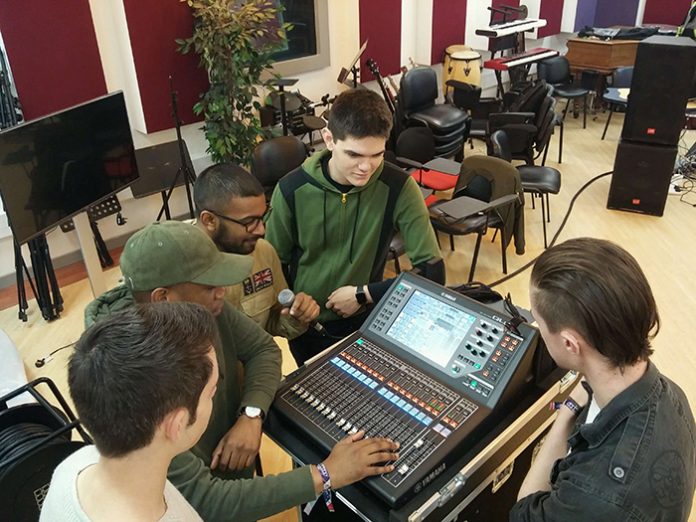Yamaha mixing consoles are a familiar sight in venues and on technical riders throughout the world, but they also play a vital role in teaching successive generations of mixing engineers their craft. One of many UK courses taught on Yamaha consoles is the BSc (Hons) degree in Music Technology at Teesside University.
The course features modules in composing, recording, engineering and producing music for a range of disciplines, for which the university recently invested in a number of brand new Yamaha MG12s. Another key element is the Live Sound modules, where students enjoy hands-on experience of QL1 and LS9 digital mixers.
“We have been using Yamaha mixers in our music labs for 12 years and the latest investment has been an upgrade to the most recent MG12 model,” said technician and Assistant Course Lecturer Jamie Donnelly. Supplied by Education Technology Specialist Academia, installed by Jamie and Course Lecturer Chris Allen, the MG12s are principally used to aid lecturers.
“Each music lab holds around 22 students and the MG12s are used to interconnect the multiple audio interfaces of the PC-based presenter machine, the lecturer’s MacBook Pro, hardware synthesisers, auxiliary cables and microphones,” said Jamie. “The synthesisers even include a venerable Yamaha DX7, which is still going strong!”
The Live Sound modules give students the chance to experience hands-on mixing with the QL1 and LS9-16. They are used in lectures, are lent to students to use on live shows and also for the final year performances.
“For these performances, second year students do the live sound mixing for the third years’ final Composition and Performance assessment, said Jamie. “Chris and I also use the consoles when providing live sound reinforcement for college events, a recent example being a masterclass by Brian Cox. For all of these events the flexibility of Dante networking is really useful, including recording to a DAW via Dante Virtual Soundcard.”
“From a teaching point of view, the QL1 develops the familiar workflow of previous generations of Yamaha console, allowing us to show students similar workflows on a wider range of digital mixing consoles, without having to learn completely new systems. These transferable skills are crucial in training our future live sound engineers,” says Chris.
“The first digital mixing desk I came into contact with was the LS9, while studying my undergraduate degree at Teesside. It gave me a much greater understanding of digital mixing and demonstrated how flexible the ‘under the hood’ facilities of digital consoles are”, says alumnus Daniel Harrison, who has since moved on to a career with AV company TedAV.
“Having the opportunity to work with the LS9 and QL1 has greatly advanced my skills as a live sound engineer,” adds current third year student Kyle Davies. “Being able to use them at my own pace within the university’s excellent facilities has helped me to become comfortable working with mixers, understanding what to expect and what is expected of me in a realistic live sound situation.”






